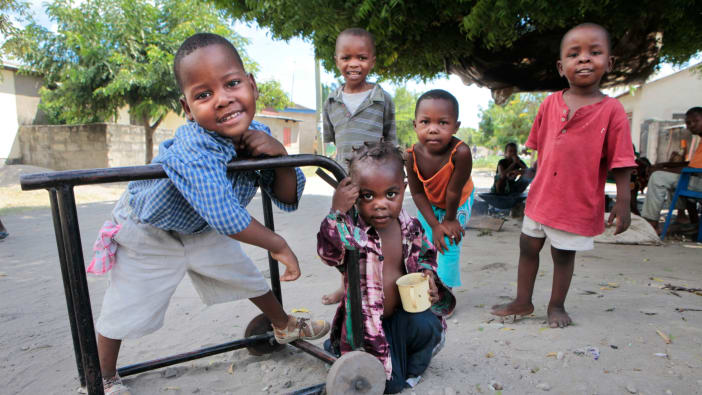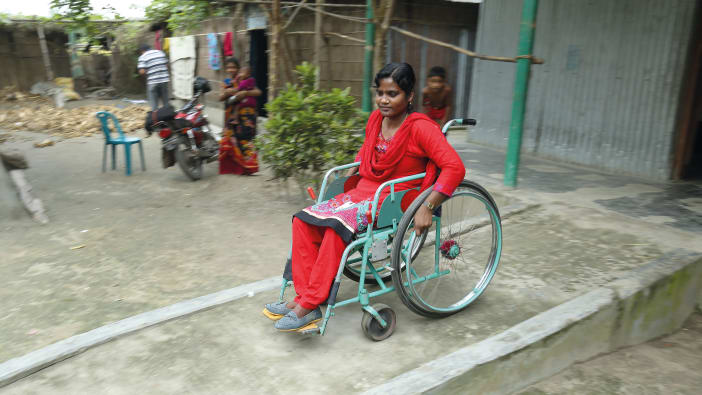Children with disabilities are among the most at risk of being placed in orphanages. Many parents do not know how to cope with a disabled child, and often there is very little community support available. Care for Children is changing this reality for disabled children in China, with incredible results.
In 1998, the Chinese government asked Care for Children’s founder, Robert Glover, to start a trial project moving children out of orphanages and into families. Partnering with Tearfund, Robert moved with his family to Shanghai. At this stage there was not even a term for ‘foster care’ in the official language of China, Mandarin (similar to Casa Viva’s story on page 18). But within three years, 500 children had been placed with local families.
Eighteen years later, Care for Children has helped 300,000 children move into loving family homes. The organisation is now also working in Thailand, and will start up in Vietnam and Malaysia in 2017. Their vision is to move 1 million children out of institutions and into families.
Robert gives several reasons for why people in China are eager to offer long-term foster care:
- In China, family and community are very important. Until recently the Chinese government had a one-child policy, meaning many couples were only allowed one biological child (though there were exceptions). But parents want to care for more children.
- Many of the foster families are Christians and are motivated by their faith to show love to those in need.
- The Chinese government has helped spread the message about family-based care. They honour families who have taken in a child, placing a plaque outside their home.
Fostering children with disabilities
Care for Children helps to find new families for both non-disabled children and those with disabilities. Many people assume it is very hard to find foster families for disabled children. But in Care for Children’s experience, many families in China and Thailand are happy to foster children with disabilities. This is partly because of Care for Children’s model and the specific support they provide for families of disabled children.
When children move out of orphanages and into families, Care for Children helps the institution to transform into a community support centre. This can include programmes to support children with special needs, such as physiotherapy services. Care for Children retrains the orphanage staff to become family support workers, who each work with 20 families. This makes it much easier for foster families to care for a child with disabilities.
With thanks to Robert Glover. To watch a video of Care for Children’s work, visit http://youtu.be/r5Q-AmcrHag
Website: www.careforchildren.com
Email: [email protected]
Case study
An amazing village near Kunming
Yang Jia is a small village in the mountains near Kunming, China. It might seem like a normal village – but it has done a remarkable thing. Fifty-three families in this community have taken in 166 children from a nearby orphanage. More than 90 per cent of these children have severe mental or physical disabilities.
‘This is a very special project,’ says Sun Yuan Jie, China Project Manager for Care for Children. ‘People here give their heart to the children. They love the children and they support each other.’
First, Care for Children spent time in the orphanage in Kunming, training the parents and preparing the children. After the children were placed in their new families, workers trained by Care for Children offered ongoing monitoring and support.
‘Of course there are challenges,’ says one foster father from Yang Jia. ‘But we work through them. The joys outweigh the challenges.’ With the love and care of their new families, the children begin to thrive and smile again.
‘We really love them,’ one foster mother adds. ‘We love them as if they were our own children, and they love us like we are their parents.’
The parents in Yang Jia say that their happiest moment in the last ten years was when they heard the children start calling them ‘mum’ and ‘dad’ for the first time.








